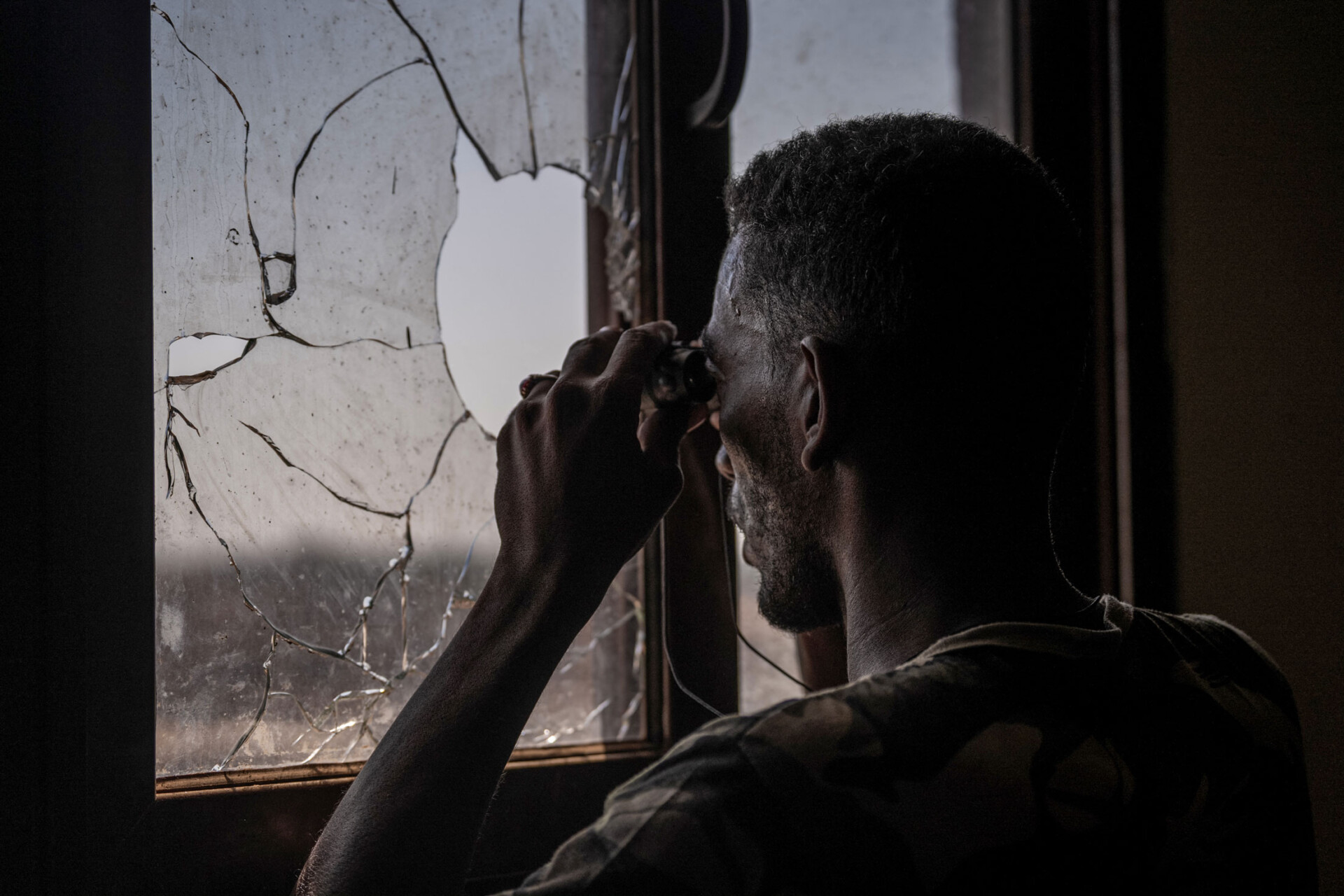Hosted by Kwangu Liwewe
Featuring Raga Makawi and Hamid Murtada
Produced by Finbar Anderson
Listen to and follow The Lede
Apple Podcasts | Spotify | Podbean
While it may not be the conflict most intensively covered by international media, the current Sudanese civil war is certainly one of the most destructive and disruptive, with tens of thousands killed, 13 million displaced and the country living through the world’s worst humanitarian crisis.
On this week’s episode of Global Insights on The Lede, New Lines’ Kwangu Liwewe hears from editor and researcher Raga Makawi, and former nonresident fellow at the Tahrir Institute for Middle East Policy Hamid Murtada.
“Whether you like it or not, you are associated with one fighting force or the other. And the cost of that is massive.”

Makawi, who has just published a briefing paper on Sudan’s opposition militia, the Rapid Support Forces, tells Liwewe that both the RSF and the Sudanese Armed Forces are inflicting terrible civilian casualties. “They’re not bombing military installations, they’re bombing civilian residential spaces,” she says. “Both parties, both belligerents have committed atrocities, they’ve committed crimes against civilians in Sudan.”
Makawi explains that the RSF’s history has equipped it with the tools to solidify its political and economic control in the areas under its authority. “It was created as a medium, not just of fighting rebels in the periphery, but also as a medium of economic control in places like Darfur,” she says. “So the RSF actually came to Khartoum with a wealth of governance knowledge. They knew how to twin violence with economic control.”
Murtada’s background is not only in research, but in grassroots activism as a member of one of Sudan’s “Neighborhood Resistance Committees,” which sprang up across the country during the 2019 uprising against former President Omar al-Bashir. The country’s youth, he says, “are a lot more comfortable and feel a lot more useful expressing their politics outside conventional political groups, political parties, traditional civil society and so on.”
Supporting those groups, he argues, will be key to reducing the violence and eventually bringing an end to the civil war. “These groups have a lot more legitimacy,” he says. “If the international community is trying to find peace, these are the peace partners, not the warring factions.”


